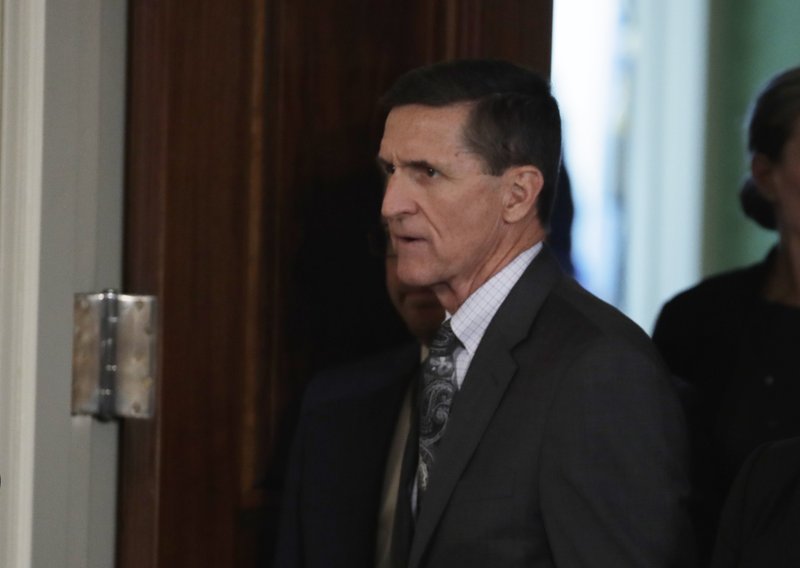WASHINGTON — President Donald Trump was told in late January that his top national security aide had misled his vice president, three weeks before Trump ousted adviser Michael Flynn amid a controversy over Flynn's contacts with a Russian official, a White House spokesman said Tuesday.
Press secretary Sean Spicer said Flynn's firing on Monday was prompted by a gradual "erosion of that trust" and not any concern about the legality of the retired general's calls with the Russian ambassador to the U.S. Spicer said the president withheld judgment on Flynn until after the White House counsel's office conducted a review of the legal issues raised by the calls.
Flynn's ouster appeared to be driven more by the idea that he had misled Vice President Mike Pence and other officials than by the content of his discussions with the Russian. Still, the matter deepened questions about Trump's friendly posture toward Russia.
"This was an act of trust — whether or not he misled the vice president was the issue and that was ultimately what led to the president asking for and accepting the resignation of Gen. Flynn," Spicer said.
Flynn's resignation came after reports that the Justice Department had alerted the White House weeks ago that there were contradictions between Trump officials' public accounting of the Russia contacts and what intelligence officials knew to be true based on routine recordings of communications with foreign officials who are in the U.S.
Spicer said White House counsel's office reviewed the situation after it was flagged by the Department of Justice, and along with the president, the counsel determined that it did not pose a legal problem.
[DOCUMENT: Read Michael Flynn's resignation letter]
White House officials haven't said when Trump was told of the Justice Department warning or why Flynn had been allowed to stay on the job with access to a full range of intelligence materials.
Sen. Lindsey Graham, R-S.C., a longtime Russia critic, said Congress needs to know what Flynn discussed with the ambassador and why.
"The idea that he did this on his own without any direction is a good question to ask," Graham added.
Pence and others, apparently relying on information from Flynn, had said the national security adviser did not discuss U.S. economic sanctions against Russia with the Russian envoy during the American presidential transition. Flynn later told officials the sanctions may have been discussed, the latest change in his account of his pre-inauguration discussions with Ambassador Sergey Kislyak.
Such conversations would breach diplomatic protocol and possibly violate the Logan Act, a law aimed at keeping private citizens from conducting U.S. diplomacy. The Justice Department had warned the White House late last month that Flynn could be at risk for blackmail because of contradictions between his public depictions of the calls and what intelligence officials.
House Speaker Paul Ryan said Trump made the right decision in asking Flynn to step down.
"You cannot have the national security adviser misleading the vice president and others," Ryan said.
Read Wednesday's Arkansas Democrat-Gazette for full details.

